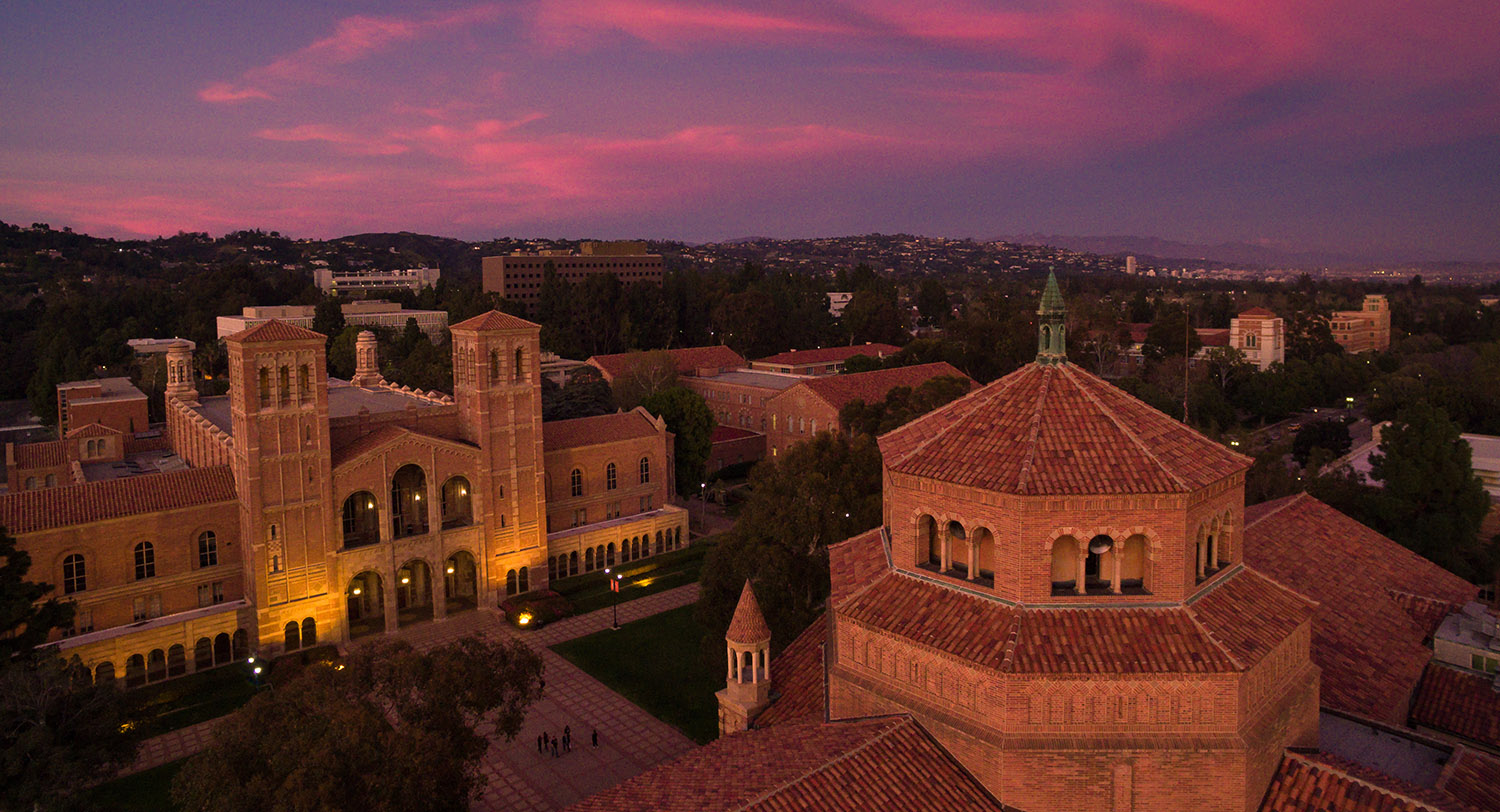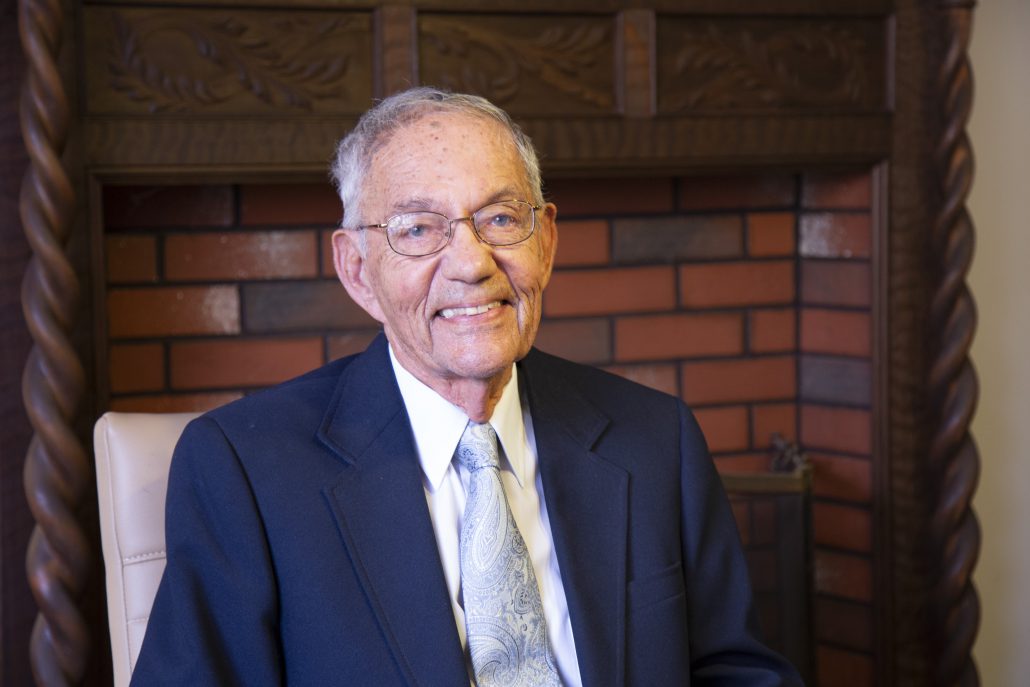UCLA student wins national award for environmental justice work
Her mission for the environment and social justice is just getting started, but she’s already built an impressive resume.
Her mission for the environment and social justice is just getting started, but she’s already built an impressive resume.
“Morton’s leadership and philanthropy are testaments to his belief that the true measure of a life is not what you get, but what you give,” said UCLA Chancellor Gene Block at the medal ceremony.

Royce Hall and Powell Library
UCLA has begun the three-year accreditation process administered by the Western Association of Schools and Colleges (WASC) Senior College and University Commission (WSCUC).
The regional accrediting agency serves higher education institutions in California, Hawaii, and the Pacific Region. The agency has accredited UCLA since 1949, and the most recent accreditation was reaffirmed in June 2010.
“UCLA aims to use the reaffirmation process to highlight and enhance ongoing efforts to improve our educational effectiveness,” said Vice Provost and Dean of Undergraduate Education Patricia Turner, who is co-chair of the campus’ accreditation steering committee. “Together, as a campus, we engage in reflection and self-study, and then apply the insights gained to refining our goals and strengthening our programs.”
The first step in the accreditation process will be the submission of UCLA’s institutional report in December 2018.
Turner noted that the institutional report will drafted in close collaboration with faculty, administration, students and staff. To make the review process as transparent as possible, the steering committee has published all documents for review online. The campus community is encouraged to provide feedback on the Reaffirmation of Accreditation by WSCUC website no later than Friday, November 16.
“This process is meant to assure the educational community, the general public, and other organizations that an accredited institution has met high standards of quality and effectiveness,” Turner said.
Following the submission of the institutional report, there will be an offsite review in Spring 2019. The final phase of the accreditation process will include a three‐day campus visit in Fall 2019, culminating in WSCUC’s commendations and recommendations.

Morton La Kretz
Longtime UCLA supporter and alumnus Morton La Kretz has given a total of $20 million—$15 million this year and $5 million in 2017—to renovate the historic botany building in the southeastern part of campus. In recognition, UCLA has renamed the building the La Kretz Botany Building.
“This generous gift will provide exceptional resources and opportunities to faculty and students doing vital research in conservation and plant biology,” UCLA Chancellor Gene Block said. “Thanks to Morton La Kretz’s extraordinary generosity, the La Kretz Botany Building will become a world-class research facility and first-rate training ground for future scientific leaders.”Designed by pioneering architect Paul Revere Williams and completed in 1959, the building has been home to generations of renowned faculty and researchers. It features a third-floor glass façade that gives occupants a view of the Mildred E. Mathias Botanical Garden and many of the plants they are studying.
The renovation, which is already underway, includes a refurbished entrance and lobby accessed from Charles E. Young Drive; upgraded labs for teaching and research on botany and conservation; and a new technologically enabled class lab with an entrance on the south side of the building accessible to the garden. The project is expected to be completed in January 2022.
“We are tremendously grateful to Morton La Kretz,” said Victoria Sork, UCLA’s dean of life sciences. “His philanthropy has had a monumental impact on research and education on environmental and plant conservation studies at UCLA, and his latest gift to revitalize the botany building is yet another shining example.”
La Kretz is the founder and president of Crossroads Management, a real estate development and property management company. Among his notable achievements is saving Hollywood’s historic landmark Crossroads of the World from demolition in 1977 and restoring it to its former 1930s glory.
Born in Illinois to Eastern European immigrants, La Kretz moved with his family to Boyle Heights in Los Angeles at a young age. There, his father established a grocery business and later owned a market on 9th St. and Hoover in central Los Angeles, where La Kretz stocked shelves and worked as a delivery boy during high school.
One of few students from his high school to go to college, La Kretz said, “I was ambitious, and my parents expected me to go to college. After all, going to college was the way up.”
By the time he arrived at UCLA, the United States had entered World War II and the campus was changing dramatically.
“UCLA became a training ground for officers, and you expected to be drafted at any time,” he said. “It colored almost everything.”
Like many of his fellow students, La Kretz interrupted his education by enlisting. He traded classes for boot camp and became an electronics technician in the Navy, but the war ended before he saw any action. Having been gone for two years, he returned to UCLA and earned his bachelor’s degree in psychology in 1948, while also taking business classes.
After graduation, La Kretz was eager to get to work. He took a job in a lumberyard and began learning everything he could about construction. Eventually, with financial assistance from his parents, he spearheaded his own construction projects and was soon riding the wave of the 1950s postwar building boom.
For all his success in business, La Kretz said he is most proud of his philanthropy and its impact.
“It is so satisfying to give young people an education that will enable them to focus on the pressing environmental and conservation issues of our time,” he said.
He said his latest gifts aligned well with his philanthropy to UCLA over the past 16 years. His previous major gifts include lead gifts toward the construction of La Kretz Hall, which houses UCLA’s Institute of the Environment and Sustainability (IoES); to create the La Kretz Center for California Conservation Science, located in the Santa Monica Mountains and administered through the IoES in partnership with the National Park Service; to build an entrance to the Mildred E. Mathias Botanical Garden, and to construct the La Kretz Garden Pavilion, which hosts events and classes and serves as a visitor center at the garden’s north end.
La Kretz is 92, but he has no plans to retire. He has passed on his passion for philanthropy to his daughter, Linda Duttenhaver, vice president of Crossroads Management. Duttenhaver shares his interest in supporting higher education and the environment: In 2017, she and her father established the La Kretz Research Center at Sedgwick Reserve, operated by UC Santa Barbara as part of the University of California Natural Reserve System.
La Kretz’s recent gifts are part of the UCLA Centennial Campaign, which is scheduled to conclude in December 2019 during UCLA’s 100th anniversary year.
![]()
1309 Murphy Hall
Box 951413
Los Angeles, CA 90095-1413
(t) (310) 206-1953
(f) (310) 267-2343
